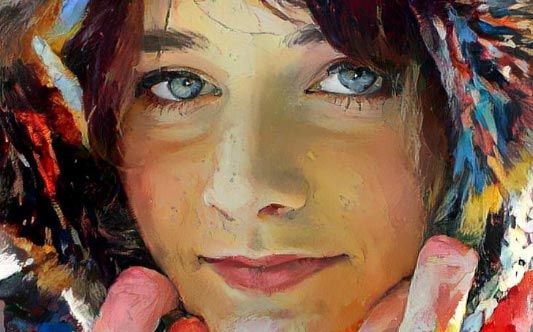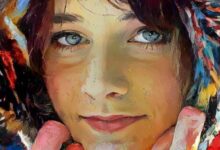
Transforming Photographs into Paintings: A Step-by-Step Guide
Have you ever looked at one of your favorite photographs and wished you could turn it into a beautiful painting? Thanks to advancements in technology, transforming photographs into paintings has become easier than ever. From traditional methods to modern digital techniques, there are various ways to achieve that artistic touch you’re looking for. Whether you’re an aspiring artist or just someone who loves art, this guide will walk you through the process of turning your cherished picture to painting stunning works of art.
Table of Contents
Why Transform Photographs into Paintings?
Before we dive into the step-by-step guide, it’s essential to understand why you might want to transform a photograph into a painting. Here are a few reasons:
- Personalized Art: Creating a painting from a photograph allows you to have a personalized piece of art that holds sentimental value.
- Gift Ideas: A painting made from a cherished photo can make a thoughtful and unique gift.
- Home Decor: Custom artwork can enhance the aesthetic appeal of your home.
- Preservation: Paintings often last longer than photographs and can be a way to preserve memories for generations.
Now, let’s explore how you can transform your photographs into paintings using different techniques.
Traditional Methods
1. Hand-Painting
One of the most authentic ways to turn a photograph into a painting is by hand-painting it. This method requires some artistic skills, but the results can be incredibly rewarding.
Materials Needed:
- Canvas
- Paints (oil, acrylic, or watercolor)
- Brushes
- Easel
- Palette
- Your chosen photograph
Steps:
- Choose Your Canvas and Paints: Decide on the size of the canvas and the type of paints you want to use. Oil paints are popular for their rich colors and texture, while acrylics dry faster and are easier to work with for beginners.
- Sketch the Outline: Start by sketching the outline of your photograph onto the canvas. You can do this freehand or use a grid method to get accurate proportions.
- Block in the Colors: Begin by blocking in the primary colors and shapes. Focus on the larger areas first and gradually move to the details.
- Add Details and Layers: Once the base colors are in place, start adding details and layers. Pay attention to light, shadow, and texture to bring your painting to life.
- Final Touches: After you’ve added all the details, step back and look at your painting as a whole. Make any necessary adjustments and add final touches to complete your artwork.
2. Tracing and Transferring
If you’re not confident in your freehand drawing skills, tracing and transferring can be a helpful technique.
Materials Needed:
- Canvas or watercolor paper
- Transfer paper or tracing paper
- Paints and brushes
- Pencil
- Your chosen photograph
Steps:
- Prepare Your Materials: Print your photograph in the desired size. Place the transfer or tracing paper between your photograph and the canvas.
- Trace the Image: Using a pencil, trace the outline of your photograph. This will transfer the image onto the canvas.
- Paint: Follow the same steps as in hand-painting, starting with blocking in colors and gradually adding details.
Digital Methods
3. Using Photoshop
Photoshop is a powerful tool that can help you transform your photographs into digital paintings.
Materials Needed:
- Computer with Photoshop installed
- Graphic tablet (optional but recommended)
- Your chosen photograph
Steps:
- Open Your Photograph: Start by opening your photograph in Photoshop.
- Duplicate the Layer: Duplicate the background layer to preserve the original image.
- Apply Artistic Filters: Go to the Filter menu and explore various artistic filters such as “Oil Paint,” “Watercolor,” or “Dry Brush.” Each filter will give your photograph a different painting effect.
- Adjust Settings: Play around with the settings of the chosen filter to achieve the desired look. You can adjust brush size, detail, texture, and lighting.
- Use Brushes for Detailing: For more control, use Photoshop brushes to paint over the image manually. This step can be enhanced with a graphic tablet for more natural brush strokes.
- Final Adjustments: Make final adjustments to the colors, contrast, and saturation to enhance the overall appearance of your digital painting.
4. Using Mobile Apps
If you don’t have access to Photoshop, there are several mobile apps available that can help you turn your photos into paintings with just a few taps.
Popular Apps:
- Prisma
- Waterlogue
- Painnt
- Brushstroke
Steps:
- Download and Install the App: Choose an app from the list above and install it on your smartphone.
- Upload Your Photograph: Open the app and upload the photograph you want to transform.
- Apply Filters: Browse through the app’s collection of artistic filters and choose one that suits your style.
- Adjust Settings: Most apps allow you to adjust the intensity and settings of the filters. Fine-tune these settings to get the desired effect.
- Save and Share: Once you’re happy with the result, save your digital painting and share it on social media or print it out for display.
AI-Powered Tools
5. Using AI Tools
Artificial Intelligence has revolutionized the way we create art. AI-powered tools can turn your photographs into paintings with remarkable accuracy and artistic flair.
Popular AI Tools:
- DeepArt
- Artbreeder
- Deep Dream Generator
Steps:
- Choose an AI Tool: Select an AI tool that you want to use. Many of these tools are available online and offer free trials.
- Upload Your Photograph: Upload the photograph you want to transform.
- Select a Style: Browse through the available artistic styles and choose one that you like.
- Generate the Painting: Click on the generate button and wait for the AI to work its magic.
- Download and Save: Once the AI has created the painting, download and save the image.
Conclusion
Transforming photographs into paintings is a fantastic way to blend the precision of photography with the expressiveness of painting. Whether you choose traditional hand-painting methods, digital techniques, or AI-powered tools, the possibilities are endless. Each method offers its unique advantages, and you can experiment with different approaches to find what works best for you.
Ready to start your artistic journey? Try out these techniques and share your creations with us. If you need more personalized guidance, book a call with one of our art experts who can help you refine your style and choose the best method for your needs. Happy painting!
Call to Action
If you’re excited to transform your photographs into stunning paintings, sign up for our newsletter for more tips and tutorials. And don’t forget to book a call with one of our experts! Click here to get started.








